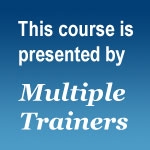
Search Results: learning
-
In this enlightening Trainer Conversation, three veteran CNVC Certified Trainers discuss whether NVC can be learned without first learning Observations, Feelings, Needs, Requests (OFNR). The conversation naturally meanders as the trainers grapple with the question, eventually covering a wide-range of topics including the spirituality and true essence of NVC.
-
-
-
Trainer Tip: When have you responded in a way you didn’t want? How could you have handled that situation differently? What would have better met your needs? Try not to judge your behavior, but learn from it. Each time we review our actions, we can learn something, become more adept at new skills, and come closer to our ideal. We can do this with the learning curve of practicing translating people’s words into feelings and needs.
-
Join CNVC Certified Trainers, Raj Gill and Mary Mackenzie as they explore the Nonviolent Communication process of Empathy. This audio will support people with a basic understanding of Nonviolent Communication who want to deepen their ability for empathic presence.
-
-
-
-
-
-
Listening is a cornerstone of dialogue and a powerful metaphor for spiritual practice. When we’re willing and able to listen, we open a conduit that allows connection and understanding to happen.
-
Using her own and participants' examples, Inbal illuminates parents on where they might be struggling with connecting to their children's needs, especially in situations where the children are responding to the parent's request.
-
-
-
-
-
-
-
Listen as Mary Mackenzie shares an eight step path to create your own NVC learning activities, based on your own NVC learning experience. In this session, Mary uses the value of requests and observations as teaching examples.
-
- Uncover the expansive possibilities of Nonviolent Communication in growing compassion for a more empathic world
- Engage with 17 global trainers on 17+ unique topics
- Connect with an international audience from novices to experts
- Immerse yourself in a festival of learning, fun, and community







